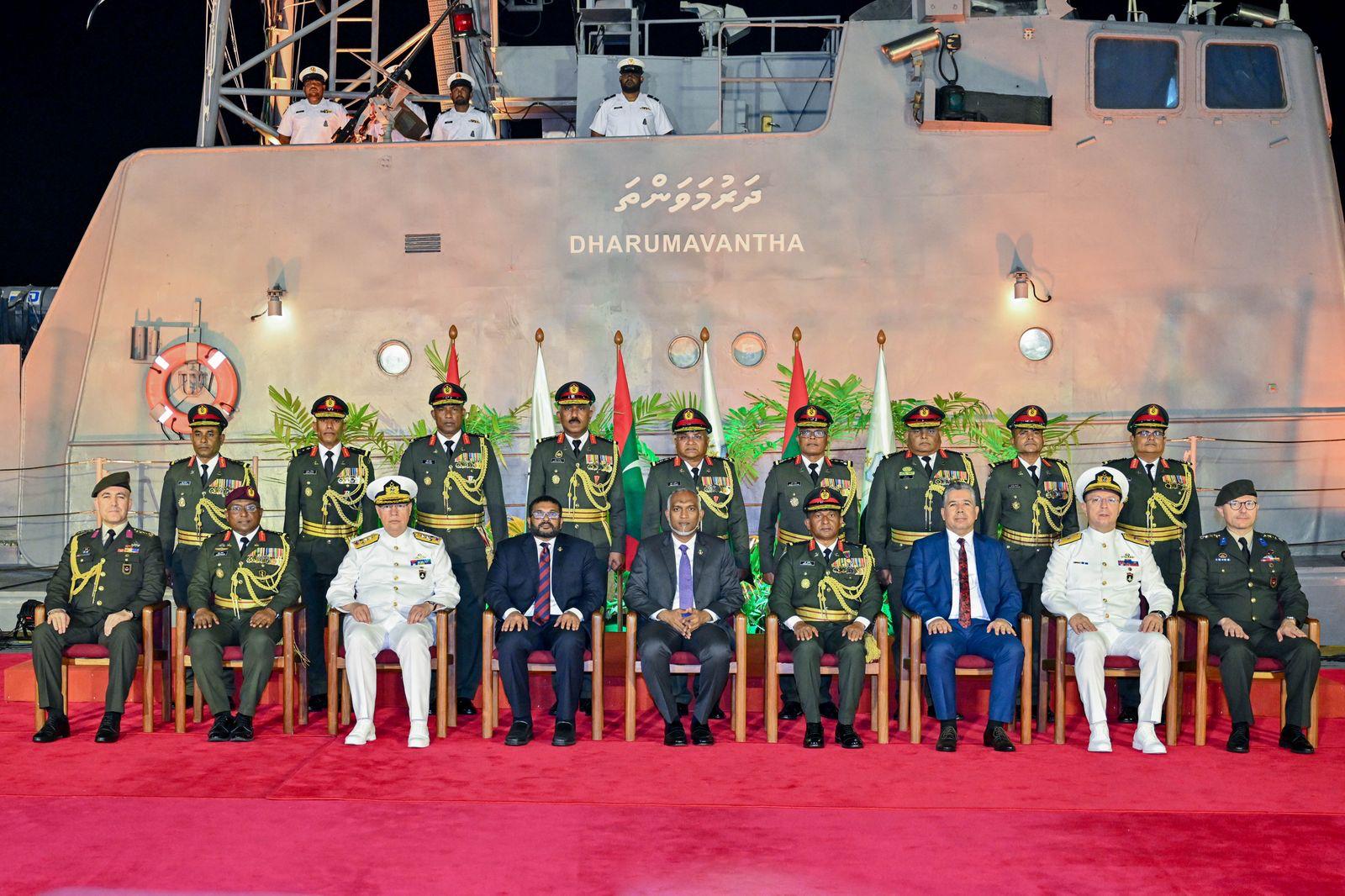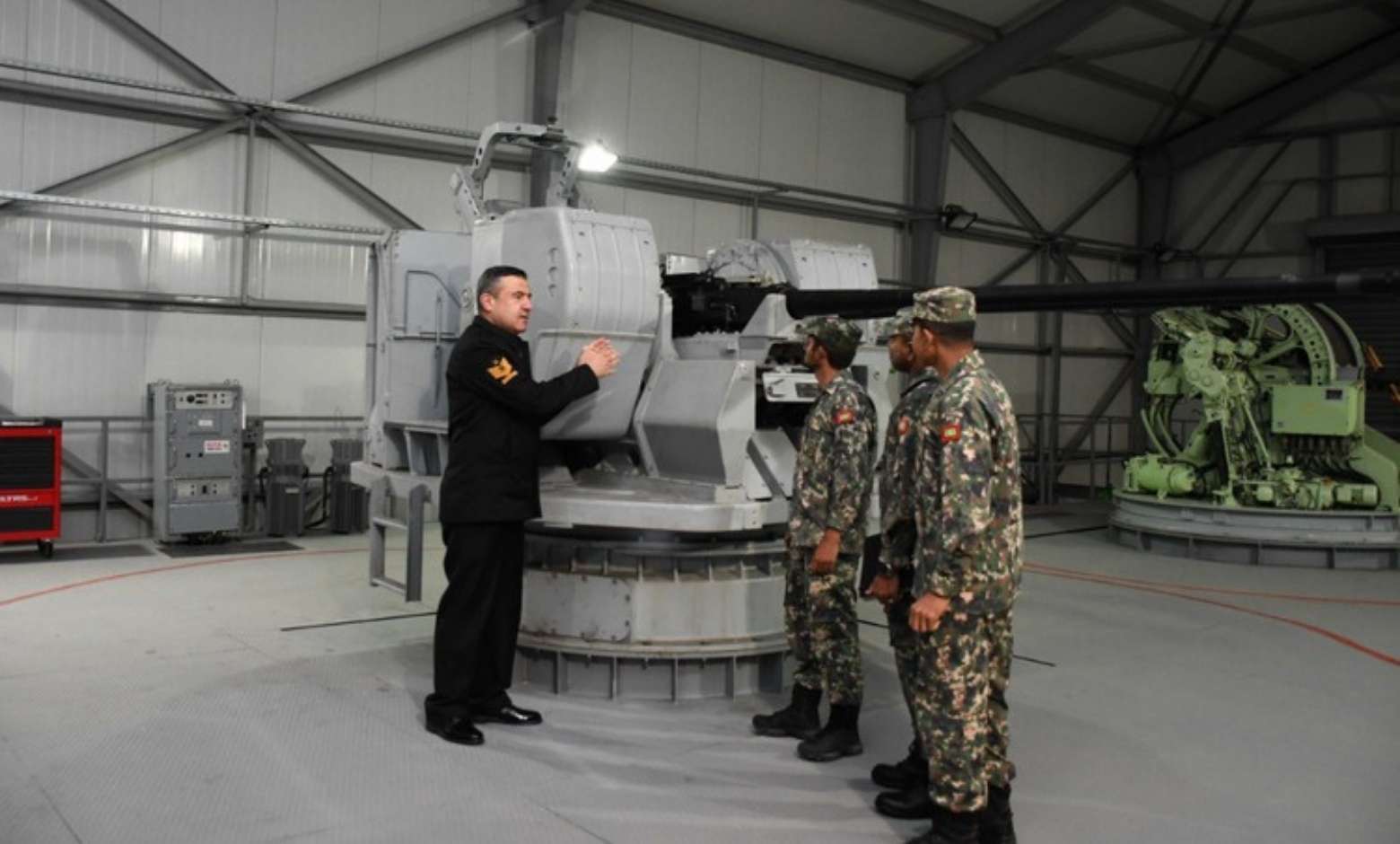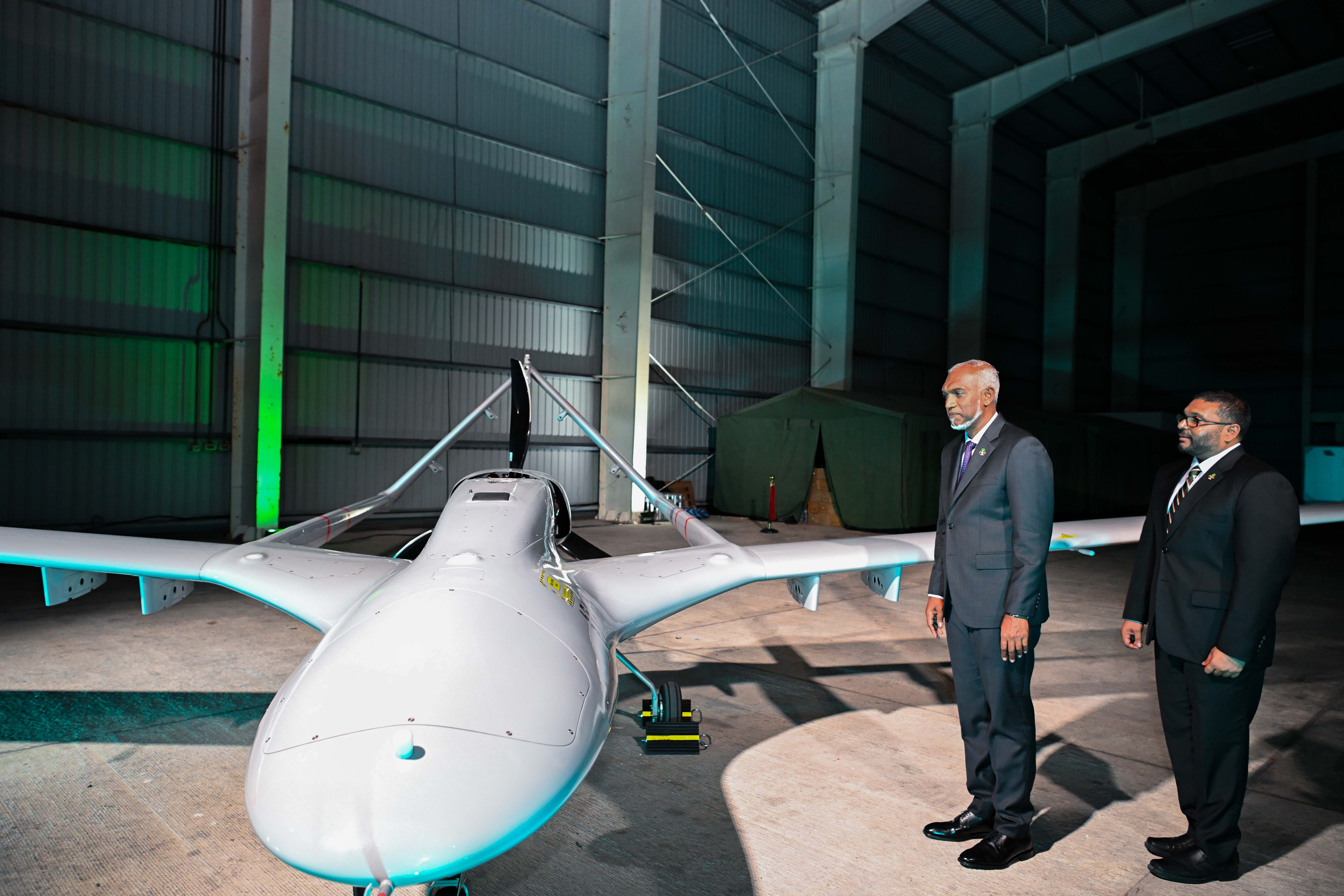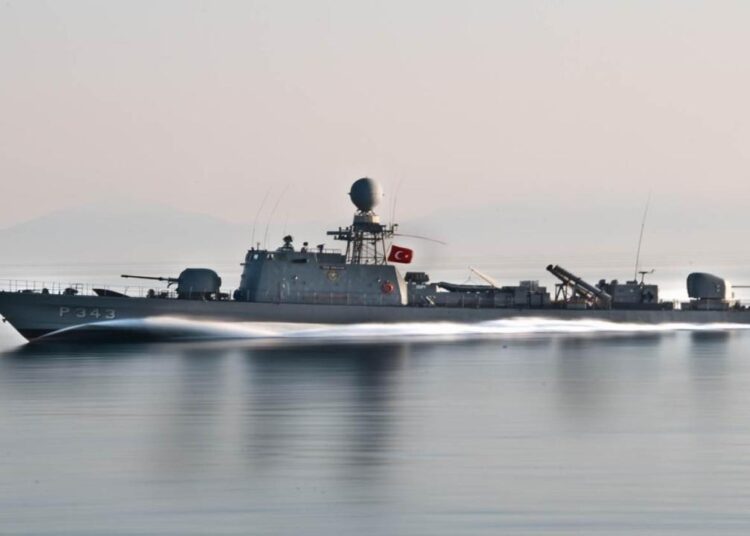Turkey has stepped up its use of defense exports and military aid as tools of foreign policy, pairing arms deals with donations in order to deepen ties and expand its influence abroad. The latest example is the Maldives, which has both received a former Turkish Navy vessel as a gift and begun operating Turkish-made armed drones manufactured by a company owned by the family of President Recep Tayyip Erdogan’s son-in-law.
On August 15 the Maldives National Defence Force ( MNDF) officially commissioned a Doğan-class fast attack craft into its coast guard fleet in Malé, the capital of the small island nation located southwest of Sri Lanka in the Indian Ocean. The vessel, renamed CGS Dharumavantha, had previously served in the Turkish Navy as TCG Volkan (P-343). Built on a German Lürssen Werft design known as FPB-57, the ship was launched in 1980 and entered Turkish service the following year. For more than four decades it carried out coastal defense and training missions before being reassigned in 2024 as a test platform.
Prior to the transfer the ship underwent extensive maintenance and modernization at Istanbul Naval Shipyard. Nineteen Maldivian sailors spent a month in Turkey earlier this year to train for its operation. The vessel was then transported by carrier ship, leaving Istanbul on July 1 and arriving in Malé on August 7 before the formal handover. The Maldivian government said the Dharumavantha will support patrols, anti-smuggling missions and emergency response operations across its widely scattered archipelago.

The warship gift coincided with another step in bilateral defense cooperation. In March 2024 the Maldives Air Corps, a newly created branch of the MNDF, received three Bayraktar TB2 armed drones from Turkey. The delivery took place at Maafaru International Airport on Noonu Atoll, where one of the aircraft conducted its first patrol mission the same day. Officials in Malé did not confirm the total number of drones ordered, but Turkish media outlets reported the deal covers six systems. The contract, signed on March 3,2024 was valued at $37 million.
The TB2 drones are produced by Baykar, a private Turkish defense contractor co-owned by Selçuk Bayraktar, who has been married to President Erdogan’s daughter since 2016. Baykar’s drones have become one of Turkey’s most prominent defense exports, having been used in conflicts in Ukraine, Syria, Libya and the South Caucasus. In the Maldives the systems will provide real-time surveillance and strike capabilities across vast maritime zones where the MNDF has limited assets.
Maldivian drone operators began training in Turkey in early 2024, with the first cohort returning home earlier this year. A second group is expected to follow, according to Maldivian defense officials. President Mohamed Muizzu’s office said the aircraft will help secure fisheries, monitor smuggling routes and strengthen overall border control.

Turkey’s decision to provide the Dharumavantha free of charge while simultaneously selling advanced drones mirrors a broader trend in Ankara’s foreign policy. Analysts say the government has increasingly bundled arms exports, debt relief and infrastructure projects into packages designed to extend influence in regions where the Western presence is less pronounced.
Nordic Monitor previously reported that Turkey has forgiven or restructured the debts of several countries that simultaneously purchased Turkish defense equipment. In one case Kyrgyzstan bought Turkish drones and armored vehicles valued at more than $33 million even as Ankara canceled nearly $59 million in debt owed by Bishkek. Although Turkish President Erdogan described the move as support for environmental initiatives, the legal text of the agreement contained no reference to climate-related projects.
The news story also highlighted Turkey’s engagement in Somalia, where more than $1 billion in aid has been provided since 2011, including payments to cover the country’s obligations to the International Monetary Fund. At the same time Ankara expanded its military footprint and awarded major contracts to Turkish companies. Critics argue the pattern demonstrates how aid and defense sales are interwoven to secure long-term influence, with Turkish companies close to the government often benefiting.
Supporters of the policy counter that it reflects Turkey’s emergence as a donor in the Global South and its pursuit of multipolar development partnerships. The Turkish government describes the approach as an alternative to traditional Western aid models, one that emphasizes state-building and security alongside economic assistance.
Figures from the Turkish Exporters Assembly show the scale of the trend. Defense exports reached $5.5 billion in 2023, a 31 percent increase from the previous year. Much of the growth has come from unmanned aerial vehicles such as the Bayraktar TB2 as well as the larger Akinci and Aksungur drones. The government argues that this surge strengthens Turkey’s global standing and supports its domestic defense industry, which has become a flagship of Erdogan’s economic agenda.

In the Maldives, a country of about half a million people spread across more than 1,000 islands, the acquisition of both the Dharumavantha and the TB2 drones represents the largest boost to military capacity in recent years. For Malé the new assets provide tools to secure its extensive exclusive economic zone and to deter illegal fishing, piracy and trafficking. For Ankara the transfers showcase how military donations and arms sales can work in tandem to build partnerships far from Turkey’s immediate neighborhood.
Whether the strategy will yield lasting influence remains a matter of debate. Opposition politicians in Turkey have criticized the practice of giving away ships or forgiving debts at a time when the domestic economy faces high inflation and a weakening currency. However, Erdogan’s government maintains that such moves are essential to cementing Turkey’s role as a rising power and to ensuring its defense industry continues to expand into new markets.












